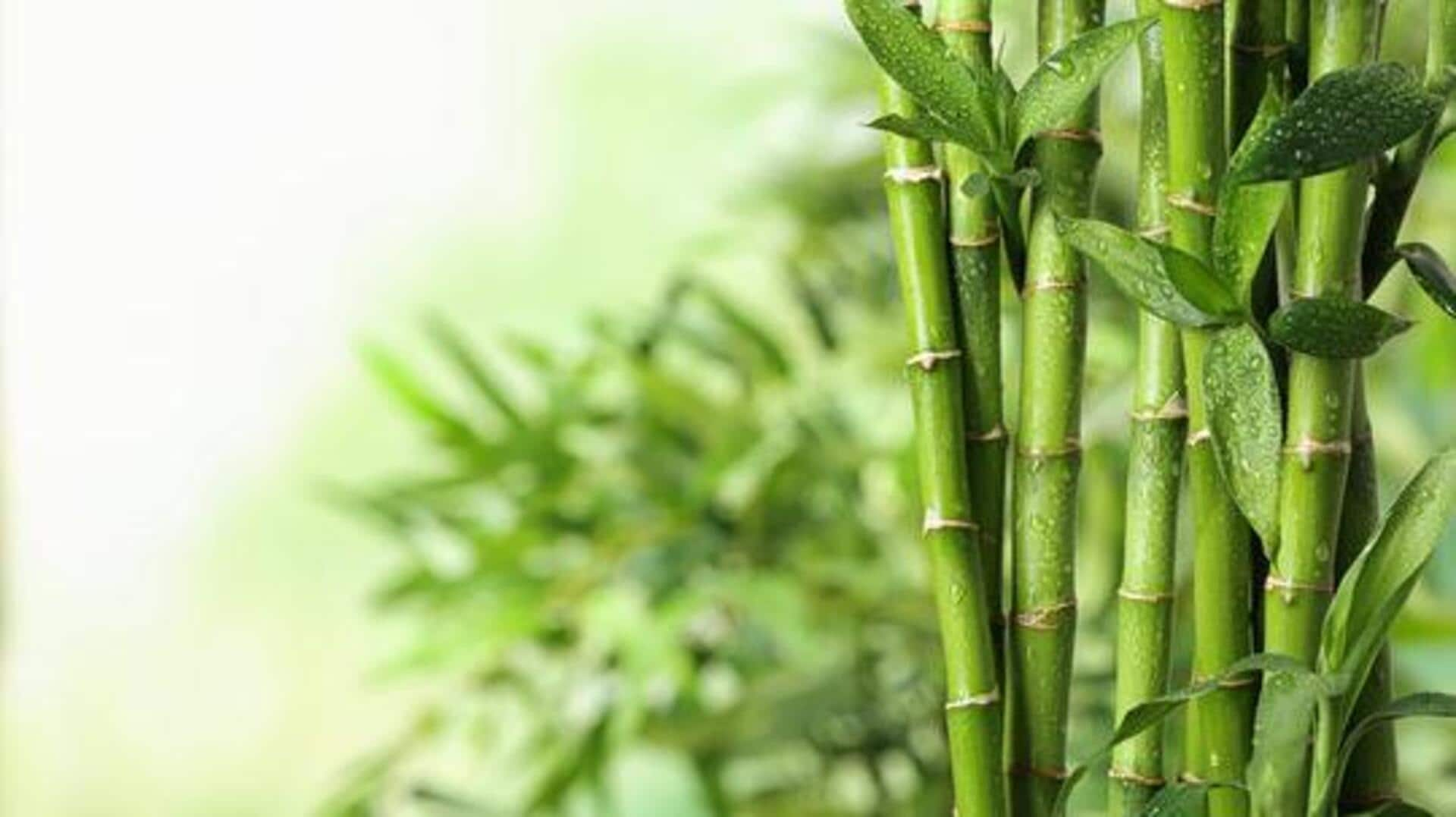
Bamboos are super versatile, here's proof
What's the story
While we all admire African bamboo for its decorative value, its potential goes way beyond that. The versatile plant offers numerous benefits, some of which aren't even known. From sustainable construction materials to innovative use in textiles and medicine, African bamboo is a resource yet to be explored. Let's take a look at these hidden talents to understand how this natural wonder can help industries and promote sustainable practices.
#1
Sustainable building material
African bamboo is gaining popularity as a sustainable building material as it is strong and flexible. It grows quickly, making it an environmentally-friendly substitute for traditional timber. Notably, bamboo's tensile strength can rival steel's, which makes it an ideal option for constructing resilient structures. Being lightweight also minimizes transportation costs and carbon emissions from building projects. As environmental awareness increases, so does the demand for bamboo in construction.
#2
Textile innovations
The textile industry has started looking at African bamboo fibers to make fabrics. Soft, breathable, and naturally antibacterial, these fibers are perfect for clothing and home textiles. Using bamboo to make fabric consumes lesser water than cotton production, making it less harmful to the environment. Bamboo fabrics are also biodegradable, providing a sustainable alternative to eco-conscious customers looking to ditch synthetic materials.
#3
Medicinal properties
African bamboo has medicinal properties that have been used in traditional medicine for centuries. The plant's extracts have been used to treat various ailments, owing to their anti-inflammatory and antioxidant properties. Research is still underway regarding the potential health benefits of compounds found in bamboo leaves and shoots. These natural remedies offer promising avenues toward developing new treatments and preserving cultural heritage related to traditional healing practices.
#4
Environmental benefits
Bamboo is a key component of environmental conservation efforts across Africa. Its wide root system prevents soil erosion by anchoring the earth during torrential rains or floods. Bamboo forests also serve as carbon sinks, absorbing large amounts of carbon dioxide from the atmosphere during photosynthesis activities every year. This positively contributes towards reducing climate change impacts worldwide through lower greenhouse gas emissions levels overall globally each year.